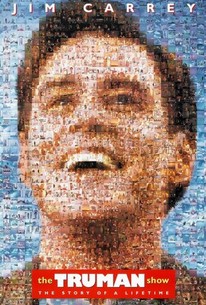Mindfulness is a buzz word of the moment. And being present is a recurring theme in my blog posts.
Yesterday however, I realised that there’s an element of resistance in the way I’ve been practising mindfulness. I’ve been using my version of mindfulness to criticise myself and block self-expression.
Living in the now is being present to experience life as it happens. It’s not about dredging up the past or catapulting into the future. It also isn’t about trying to change how things are. Mindfulness means nonresistance.
Mindfulness has certainly enriched my experience of life. It has enabled peace of mind and improved my sleep. And it’s giving me a deeper appreciation of myself, other people and the world around me.
I’ve also become pretty adept at catching myself as I catastrophise a situation. When I worry about what could possibly go wrong, I can quickly bring myself back to the present moment and know that, right now, I’m okay. This potential future I’ve spun dangerously into doesn’t even exist. All that exists is this moment.
Recently however, I’ve been a little hard on myself when I find myself in my head. Get out of there Sharon, I shout. As if my head isn’t part of me.
When I feel excited about something, I immediately shut off that excitement. I tell myself that I’m silly for fantasising. I insist on being present. There’s no place for dreams Sharon, I scold. There is only now.
I convince myself that hope is a dirty word. Where there’s hope, disappointment will follow.
It’s as if Eckhart Tolle has infiltrated my inner voice and I can hear his disapproval every time I slip into expectation or attachment. Of course, there’s massive wisdom in Eckhart Tolle’s teachings. And mindfulness is a wonderful practise. But what’s important is how we internalise these concepts.
Yesterday, I complained to my Life Coach that I’m not being present when I fancy a guy. I described being alone in my room thinking of a man I like.
The Life Coach asks me what that feels like. “It’s nice,” I answer. “I feel excited. But then, if things don’t work out the way I’d hoped, I feel so disappointed. I’m not being present.” I frown.
“Are you not being present?” he wonders.
Suddenly, I realise that I am being present. I’m actually always present. I’m always here.
I’m aware of myself as I fantasise. I’m aware as I attach hope to someone or something. I’m the witness, the consciousness, that’s observing everything, all of the time.
When I feel disappointed or excited, in love or anxious, it doesn’t mean I’ve taken a step back spiritually. It just means that I’m human. I’m experiencing and learning.
Being present doesn’t eradicate emotion. Mindfulness doesn’t obliterate thought.
I can be present in my hope and disappointment. I can think thoughts and I can watch myself as I think them. I can allow the inner child to play and get excited. And I can open up to love instead of closing myself off for fear of losing myself.
Mindfulness isn’t about being perfect and feeling zen all the time. It’s about being present to everything exactly as it is. It’s about observing and accepting.
With this new understanding, I feel relieved. I feel looser. I give myself permission to be a human being with wants, needs and desires. I allow myself to feel, to play and to love.
This frees me up to recognise myself as something bigger also. The witness who sees everything and doesn’t judge or criticise. And so I can allow all that is and be as I am.






















